In dumpsters, a glimpse of capitalism’s dark side
Dumpster diving is less about the treasure hunt than it is about shining a spotlight on the mind-boggling amounts of perfectly good stuff that goes directly into the trash
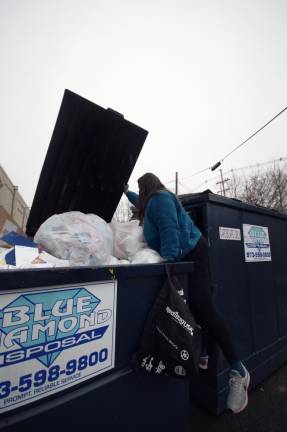
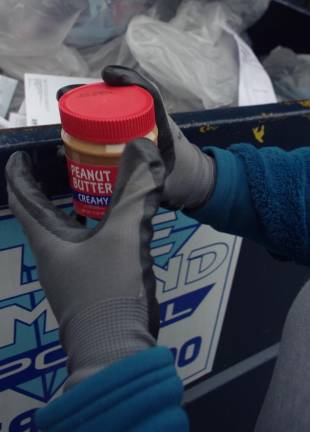
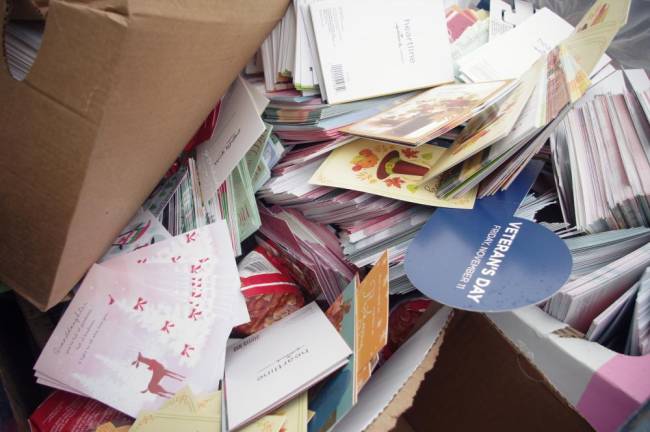
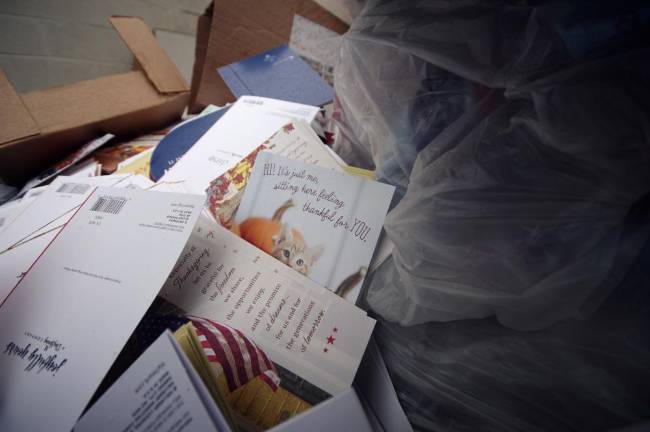
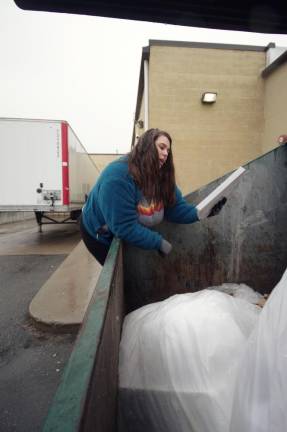
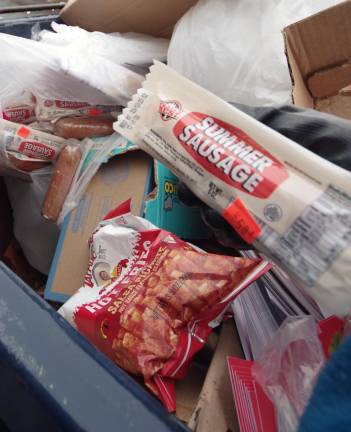

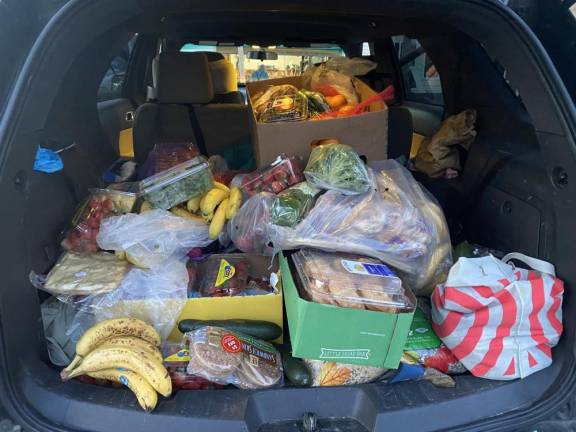
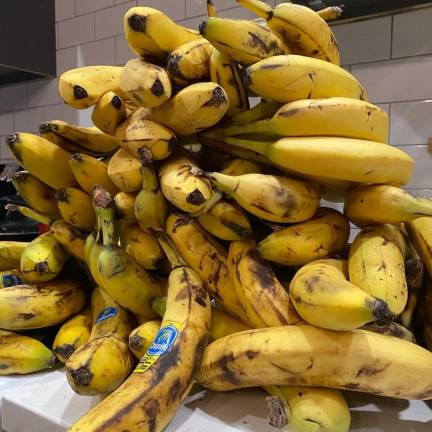
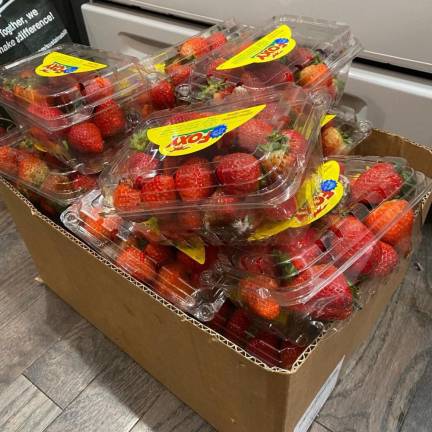
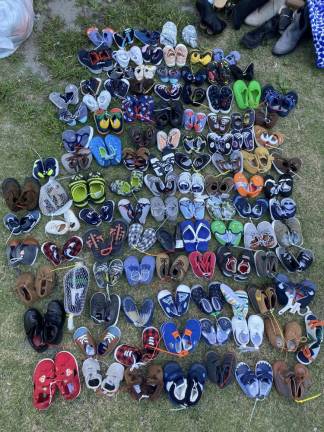
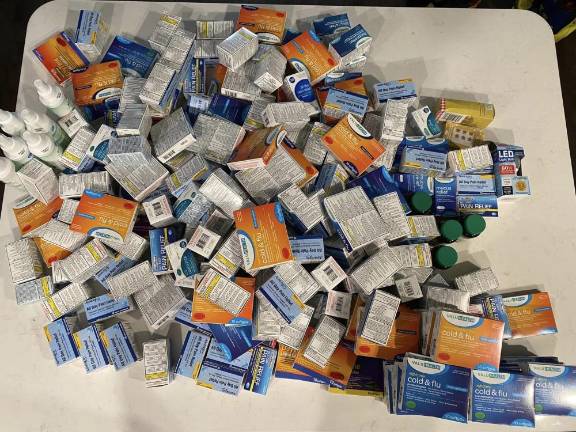
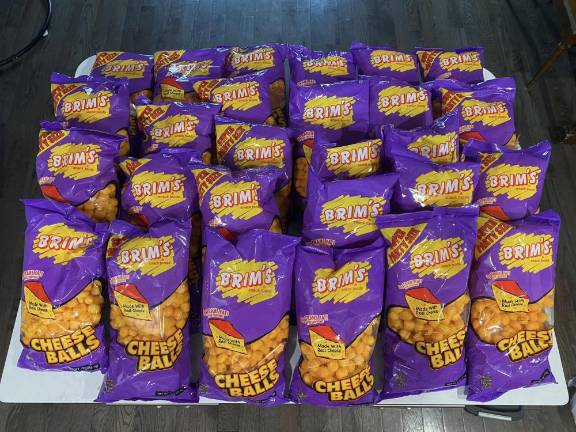
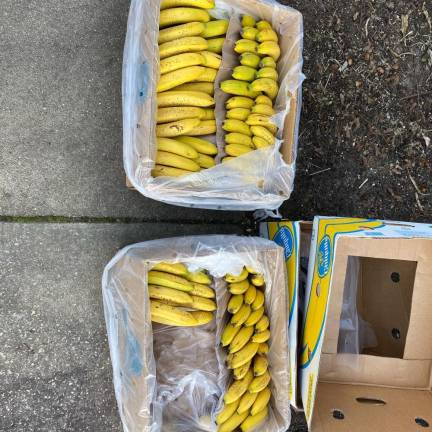
When people use the term “dumpster diving,” it’s usually heavy on the sarcasm, perhaps accompanied by a slight snicker at the visual of someone rummaging through the trash. I myself was envisioning this piece as a lighter-hearted article, drawing fun stories from those who participate in the practice, perhaps sharing some unusual finds they may have trolled up from the bins. As it turns out, that misbegotten attitude was born of the stigma that shrouds dumpster diving. Once I began to learn more, my amusement dissolved and I was left heartsick and angry.
Dumpster diving isn’t so much about finding treasure in the garbage – though as food prices rise, lowering the grocery bill is a mounting incentive for some. But for many who “shop around back,” it’s really about shining a spotlight on the mind-boggling volume of corporate output that goes directly from store shelves to the landfill.
“The amount of waste shook me,” said Megan Morgan of Vernon, NJ, who’s been checking out dumpsters firsthand for a few months. “After food, the next most common items are clothing. Some places purposely damage anything unsold so that they can’t be taken from the trash,” she said.
My research began on a Reddit forum, a website often considered the dumpster of the internet, so it seemed apropos. From there I found my way to the Facebook group New Jersey Dumpster Divers. That’s where I found Morgan, whose own interest was piqued about a year ago via a TikTok video.
Tens of thousands of videos come up under the hashtag #dumpsterdiving, the work of a growing wave of activists nationwide who’ve taken to social media to shame wasteful retailers and pressure them to do better – with increasing success.
Though she finds the hunt exciting, Morgan, a married mother of two, often feels more upset than exhilarated by dumpster diving. As for that aforementioned stigma, she said, it is very real. She avoids telling some people that an item is from a dumpster. Better to show than tell. After bringing some friends and family members with her to see firsthand, they too were surprised by what is considered garbage and makes its way into the landfill.
“The worst I’ve seen is Old Navy,” she said, after a moment’s hesitation. “I’ve seen huge bags of new clothing with tags, and they sliced all of them.” Stores commonly destroy deadstock by slashing, shredding or burning in order to maintain the value of their brand and claim a tax write-off.
This point seemed particularly to upset her. “I donate a lot of what I find, so much of it.” On the other hand, she had noticed Costco was becoming increasingly green with their waste. “They separate out the food items now, in a separate bin for compost,” she said.
For those curious about checking out dumpsters themselves, the practice is typically legal unless prohibited by local regulations. The contents of a dumpster are generally considered public property. According to a 1988 Supreme Court ruling, when a person throws something out, that item enters into the public domain. However, divers can get ticketed or even arrested for trespassing on store property, so avoid dumpsters posted with a “private property” or “no trespassing” sign.
“Just drive around,” Morgan advises would-be divers. “There are no best days or times to go. Go often and always look for new places.”
A week after our phone conversation, Morgan and I met up in a parking lot so I could follow along as she made her rounds through back alleys of neighborhood strip malls. “You ready, guys?”, she said, turning toward the backseat where her two young kids were buckled, and off we went.
I could immediately see the allure. Rows of nearly identical bins, covers closed, holding who-knows-what. There could be anything inside, all you have to do is lift the lid. There’s an adventurous air to it, doubly so when you are toeing the ill-defined line of legality.
By the time we dug into the first dumpster, the picturesque snow of late February had given way to freezing rain and sleet. The cold, wet wintry mix made the dumpster diving itself a more intense ordeal, as the units and contents within were quickly becoming encased in a layer of half-frozen ice. Still, the siren song of the dingy metal receptacles could not be ignored.
There is no art to dumpster diving, no guarantees, no real way to stack the odds in your favor. It helps to keep in mind that it’s mostly just a game of luck, to avoid becoming discouraged by the misses and empty bins. Schrodinger’s Dumpsters: they are simultaneously both full of treasure and empty until you open the lid.
On this wet night, Morgan was met with many dumpsters that contained nothing but plastic bags full of Styrofoam and similar packing materials. But one held a cache of – if not treasure, then certainly non-trash.
“Geez, that’s a lot of food,” said Morgan, upon opening the dumpster lid. “It must be expired.” She picked up a jar of peanut butter from a pile. “Oh, it’s not expired at all.” She grabbed a bag of chips. “These are still good, too.”
After a minute of pulling aside literally thousands of greeting cards from holidays past – from Veteran’s Day to, ironically, Thanksgiving – she found a bag full of summer sausages. The five-ounce tubes were vacuum-sealed, shelf-stable and a month from expiration. The first three ingredients were pork, water and beef. In other words, pigs and cows were raised and slaughtered to make them. “I’m going to donate all this,” Morgan said matter-of-factly as she organized the items into her shoulder bag.
It felt good to know that this particular haul was heading to a good place. But the fact that Morgan had to pull it from a dumpster in the freezing rain is something that will never sit right with me.